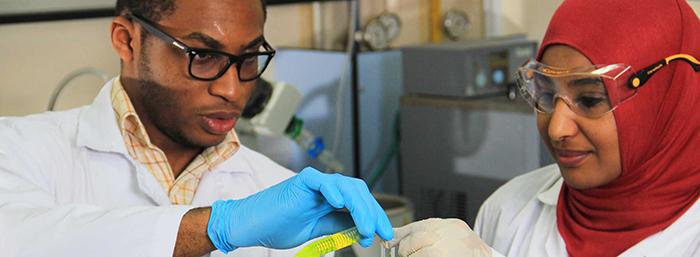- About
- Admissions
- Study at AUS
- Prospective Students
- Bachelor's Degrees
- Master's Degrees
- Doctoral Degrees
- Admission Publications
- International Students
- Contact Admissions
- Grants and Scholarships
- Sponsorship Liaison Services
- Testing Center
- New Student Guide
- File Completion
- New Student Orientation
- Payment Guide
- Executive Education
- Students with Disabilities
- Academics
- Life at AUS
- Research
- Contact Us
- Apply Now
- .

AUS launches GCC’s first Master of Science in Biomedical Engineering
American University of Sharjah (AUS) is launching a Master of Science in Biomedical Engineering (MSBME) degree this fall semester, starting August 2017, the first such program in the Gulf Cooperation Council (GCC) region. This dynamic, multidisciplinary program is aimed at meeting an increasing demand for biomedical engineers in the healthcare industry and in biomedical research.
The MSBME, offered by the College of Engineering (CEN) and the College of Arts and Sceinces (CAS), will prepare students for advanced careers and/or doctoral studies related to biomedical engineering. The university will offer MSBME students teaching and research assistantships, which include stipends and tuition waivers, on a competitive basis.
"Recent developments in the Middle East and North Africa (MENA) region, and specifically in the GCC countries, have increased the need for biomedical engineers," said AUS Chancellor Dr. Björn Kjerfve. "The tremendous rate of population growth in the MENA region is accompanied by a concurrent demand for and growth in healthcare services, such as hospitals, clinics, medical colleges, medical technology suppliers and biomedical engineering, which is reported to be one of the fastest growing engineering discipline worldwide. The launch of the MSBME program is aligned with our mandate to become a top research university, as we continue to produce highly qualified graduates who will support and sustain the growing industrial and economic demands and development of the country."
Dr. Hasan Al Nashash, Director of the AUS MSBME Program, stated that the program will enhance research. "The MSBME program will provide an opportunity to conduct advanced biomedical engineering research to support the efforts in combating the region's specific healthcare challenges, including serious and prevalent diseases such as diabetes, cardiovascular disease, chronic obstructive pulmonary disease (COPD), cancer, perinatal and genetic diseases," said Dr. Al Nashash.
Based on high standards similar to those followed in the United States, the AUS MSBME curriculum provides core courses in mathematics, anatomy and physiology, followed by elective courses in several biomedical engineering subdisciplines. Students can select a number of multidisciplinary areas, including healthcare operations management, planning and risk management, biomedical informatics, instrumentation, signal processing, biomaterials, drug delivery and biomechanics. These areas of study enhance the technical skills of all biomedical engineers to meet today's demands as well as those of the future.
The MSBME program will accept students from a wide variety of engineering backgrounds, including those who have earned a bachelor of science degree in biomedical, chemical, civil, computer, electrical, industrial and mechanical engineering.

